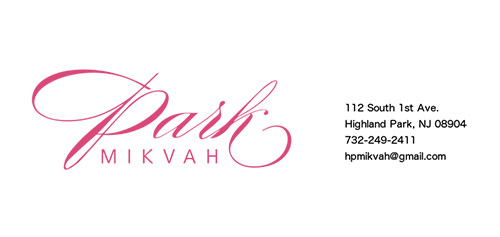
The Lefkovits Family Park Mikvah in Highland Park recently held its annual Shovavim shiur, featuring renowned lecturer Aviva Feiner, rebbetzin of the White Shul in Far Rockaway, former principal of Machon Basya Rochel seminary in Lawrence, and Mishpacha’s Family First contributor. Approximately 70 women logged onto Zoom to participate.
Lynn Hanfling, co-president of the mikvah, opened the webinar by welcoming attendees and noting improvements in technology enabling women to make appointments more easily.
Rebbetzin Feiner’s topic, “The Finer Points of Our Unique Mitzvah,” covered historical background and some common misconceptions. Presently, the concept of “Tameh” is often perceived to be dirty, or unclean. Historically, in the time of the Beit HaMikdash, Tameh and Tahor were very spiritual concepts that were realities of everyday Jewish life and referred to a person’s accessibility to parts of the Holy Temple. In those ancient times, there were paths all throughout Jerusalem designated as Tameh and Tahor, and people knew to take the proper paths. Tahara is a very spiritual concept relating to the concept of holiness, while Tameh is a vacuum of holiness.
Of the many levels, the highest level of Tameh (impurity) was a person in a tent with a dead body. Such a person was not “unclean,” but was “impure” and unable to enter parts of the temple until he or she performed the required rituals that would render them Tahor (pure) again. The concepts of Tameh and Tahor are the backbones of the Jewish household, keeping it distinct from the rest of the world in general, and have direct connections to the time of the Beit HaMikdash. So many commandments relating to the Beit HaMikdash are no longer practiced since the destruction of the Second Temple. Yet here is one mitzvah that links us directly to the Holy Temple and prepares us for its rebuilding in the time of Moshiach.
Rabbi Moshe Feinstein wrote that it is noted in Gemara Shabbat: “Everyone whose mother is Tameh, that child gets a brit milah.” What is the connection between a Brit Milah on the eighth day and the impurity of the mother? Having a brit milah on the child’s eighth day of life means that the young soul has seen the holiness of Shabbat, the Torah and mitzvot, and should always see a life of sanctity. Mentioning that the mother is Tameh, shows that she is the kind of woman who will raise her children to a life of Torah and mitzvot.
Why does a woman lose holiness after a child has been born? The holy soul of the new life she was privileged to carry left her body when the baby was born. Hence, the essence of the mitzvah of taharat hamishpacha (family purity) is the relationship and acknowledgement of the presence of the holy soul that accompanies a new baby.
Rebbetzin Feiner said that one of the first prayers taught to children is Ma Tovu, which states Balaam’s praise of the Jewish nation. Balaam was sent to curse the Jewish nation and instead blessed them. The first line literally translated as “How goodly are your tents, Jacob, your dwelling places, Israel.” (Bamidbar 24:5). Understanding that many interpret this as praising houses of worship and communal institutions, it also means praising the Jewish home. Unlike many housing units built today, the entrances to Israelite’s tents in the desert did not face one another, and allowed for privacy. The sanctity of the home and privacy of Jewish families continues to this day.
While some may feel that a woman’s role in Judaism is subordinate to that of a man, it is actually the woman’s role that is most critical in continuation of Jewish tradition from generation to generation. It says in Eshet Chayil that the “husband trusts his wife completely”—meaning that he trusts her to keep the kitchen kosher, to raise the children and teach them, and to maintain tradition. The home is the place where God is brought to earth and connected to the Temple in Jerusalem by the remaining levels of Tahara. Hence, wedding guests help rebuild the Jewish connection to Jerusalem and the Temple by bringing joy to a bride and groom on their special day.
The beauty of the mikvah is the continuity that taharat hamishpacha brings in connecting us to the holy world we wish we had, when all other levels of Tameh and Kedusha (Tahor) have fallen by the wayside.
Hanfling noted that “the topic (of the lecture) was particularly appropriate in this period of Shovavim as it revolves around the importance of the role of the Jewish woman and how keeping the laws of family purity is the bedrock of a Jewish home.”
For more information about the Park Mikvah, go to https://parkmikvah.org/.
By Deborah Melman










